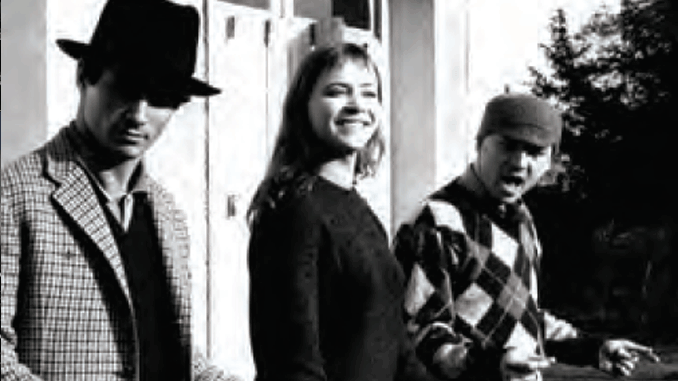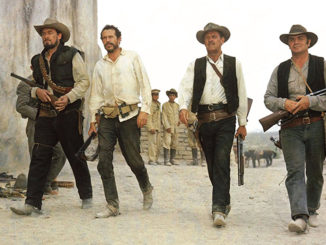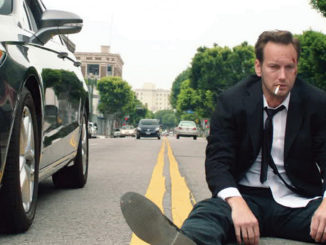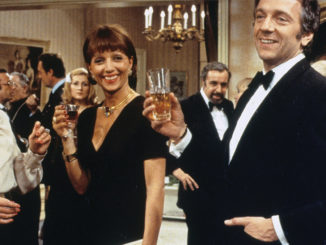
By Billy Mernit
I grew up in a Long Island suburb among people about whom a friend once said, “If they can’t eat it or wear it, they don’t want it.” So of course, like any other teenager in the late ‘60s who had creative aspirations, going against the grain of that straight-and-narrow sensibility was my reason to live. As a rabid rock’n’roll fan starting to write my own songs and stories, I was all about defying authority, bucking the system, and embracing change.
Nonetheless, when it came to movies, I’d grown up on the classic Hollywood fare my parents watched on TV: screwball comedies like “Bringing Up Baby,” westerns like “My Darling Clementine” and glossy thrillers like “North by Northwest.” These traditional, conventionally told stories were ingrained in my sensibility. Boy got girl, good won out over bad, and every mystery was sensibly solved in the end; for all of my young rebel attitudes, when it came to film, I was an unconscious conservative.
Then an older, savvier film buff I knew insisted I see a Jean-Luc Godard movie, calling him “the Picasso of cinema.” I dutifully ventured into the city, where art houses playing such exotic fare were ubiquitous. Because I’d gotten the time wrong, I walked into the New Yorker in the middle of Godard’s “Band of Outsiders” (“Bande a Part”), only to soon realize that it didn’t really matter. Seeing this French film was like inhaling cinematic helium—I could feel my American mind and heart imploding and expanding with each scene. Enthralled, I stayed for the first half, and noting that the story made just as much sense when viewed in this bifurcated fashion, I watched it again in its proper sequence. This one visit to an uptown movie theater upended everything I knew about stories and how they could be told, changing both my moviegoing and writing life.
“Band’s” story is pedestrian: Two small-time Parisian crooks convince a naïve young servant girl to help them rob the wealthy woman she works for; the guys compete for the girl’s affections, and ultimately everything goes fatally south. Shot on a shoestring budget in documentary-like black and white, the film thrives on a romantic, revolutionary spirit that said hello to me at my impressionable age because it willfully, gloriously does everything wrong.
In what should be the suspenseful scene of three accomplices planning a robbery, the restless, bickering Arthur, Franz, and Odile agree to a moment of silence—and the entire soundtrack shuts off: For some 40 seconds, we’re literally in a silent movie. Soon after, the trio decides to dance, but narrator Godard interrupts their cool, charmingly clumsy choreographed number, wanting us to know what each character is thinking. We learn that Odile (a luminescent, wide-eyed Anna Karina), is wondering if the boys notice her breasts moving under her sweater, while Franz wonders “if the world is becoming a dream, or if a dream is becoming the world.” Prior to the robbery itself, the trio kill time by racing madly through the entirety of the Louvre, seeing no art at all. These characters glance at the camera and tell stories that have nothing to do with the plot. With its playful self-consciousness, “Band” sends itself up at every turn, while its inspired filmmaking transforms banality into a peculiarly poignant dream.
“Band” became my gateway drug to a brave new cinematic world. Other foreign, visionary auteurs like Bergman and Fellini who were expanding the language of film, telling personal stories as if they were visual poems, continued to transform my imagination. Soon I could never watch a traditional mainstream movie in the same way again, and when I started writing screenplays, they were irreverent, risky, and indie-spirited.
Some 50 years later, that first Godard experience remains a North Star when I’m trying to navigate a story of my own, or sitting at my desk in the belly of the industry beast with a spec script to cover. My mind has remained more open to the artful unknown than it might’ve been, because “Band of Outsiders” taught me the most essential thing: that you can do anything in the dream that is a movie. Everything is permitted.
-Billy Mernit is a Story Analyst who lives in North Hollywood, Calif.





